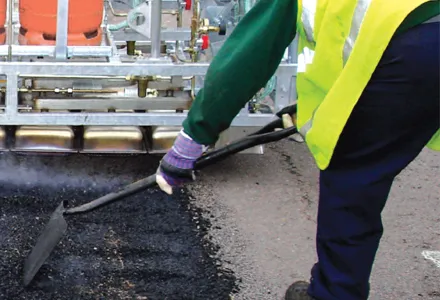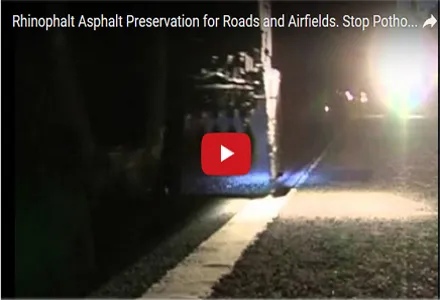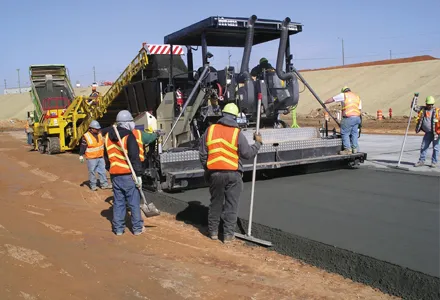ASI Solutions has developed a fast pothole repair technique in the shape of its Rhinopatch process. This comes with a life-time guarantee and is said to offer a fast repair solution when a pothole or other road surface defect fails. The firm says that using this technique means that there is no need for a works team to re-visit a site and further disrupt traffic. The solution is to provide a road repair using replacement material of a superior quality to the existing road surface and to eliminate any joints
February 23, 2012
Read time: 2 mins

The process is said to be suitable for all types of asphalt wearing course, including surface dressing. ASI has also tackled issues surrounding temporary repairs by developing a cold bagged material made from 100% recycled aggregate and a proprietary heat activated Gilsonite emulsion specifically designed to work with the Rhinopatch system. This material can be used by highway authorities to fill emergency response defects and following the emergency repair, a crew can return with ASI's infrared equipment to weld the material into the surrounding surface and provide a Rhinopatch repair. The technique does not require the use of compressed air picks so it is safer and quieter. The process recycles all waste in-situ and results in a joint-free repair that does not spoil the look of the original surface. The system can be used for all types of surface repairs up to 100mm depth including joint failures, trench reinstatements, pavement defects, around ironwork and potholes.
According to ASI, the Rhinopatch system eliminates waste by recycling all existing material and reduces the need for new aggregate extraction by 90%. This also eliminates the need for hand-held power tools that can cause hand/arm vibration injuries, cuts manual handling injuries, and reduces traffic disruptionand lowers CO2 emissions by 85%.









